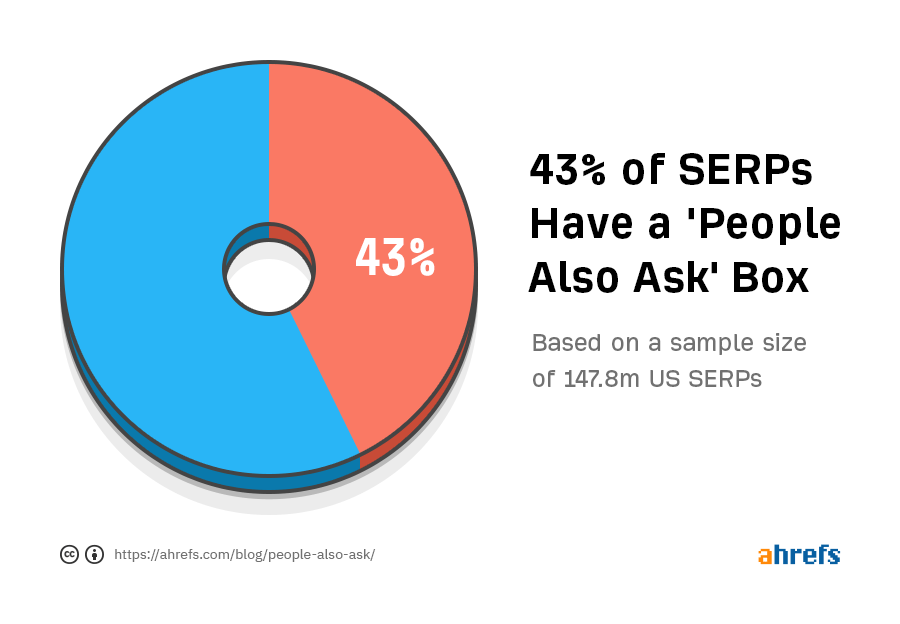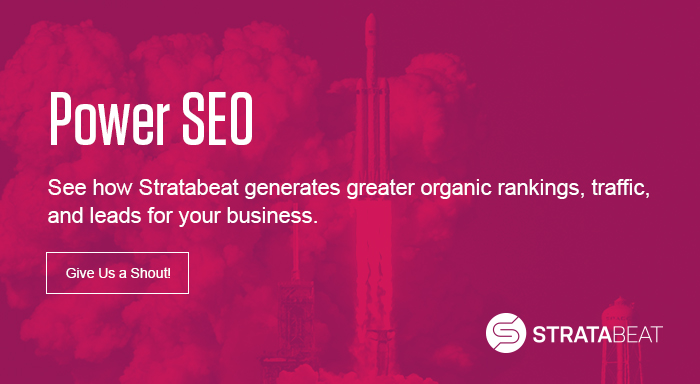Question-Based SEO for Greater Traffic, Engagement and Conversions

Questions are everywhere online. It’s the basis of a vast number of online searches, in which individuals are looking for guidance, solutions, and answers.
- “How to write a business plan” is searched 20,000/month in Google in the U.S.
- “What is UX” is searched 8,000/month.
- “How to get a business loan” is searched 5,000/month.
- “How to find marginal revenue” is searched 3,000/month.
- “How to improve SEO” is searched 1,700/month.
- “How to increase sales” is searched 1,100/month.
If there’s a topic of interest, people are asking questions.
Google even created a patent to address this.
Questions represent a significant opportunity for your business to get in front of your audience and provide them with the guidance and answers they are seeking.
Uncovering the Questions They Are Asking
There are many opportunities for you to be the one to help them. First, identify the questions they are asking. You can do this easily via one of the following tools:
Ahrefs: With Ahrefs Keywords Explorer, you can uncover the specific questions that your audience is searching on, including the monthly search volume in the U.S. and globally, along with the number of clicks from all of those searches. Search volumes can be viewed for Google, or alternatively for Bing, YouTube, Amazon, along with a number of international search engines. You can also see the difficulty level of ranking on that question as well as the specific SERP features appearing in the search results.
BuzzSumo: With BuzzSumo Content Discovery, you can search millions of forum posts, Amazon, Reddit (including any Subreddit), Quora and Q&A sites to uncover the actual questions of individuals online. Analyze questions on any popular web forum.
AnswerThePublic: This tool pulls Google Autocomplete data to inform you of the questions people are asking, and then adds a preposition wheel to reveal many questions that you may want to consider in your SEO efforts.
AnswerSocrates: If you’re interested in both the questions being asked as well as the trends surrounding the related keywords, this tool is for you. The tool pulls from Google Autocomplete, People Also Ask questions, and Google Trends data to reveal relevant questions.
Simpletools.io: Looking to uncover the questions being asked in Google’s People Also Ask boxes? Simpletools.io helps you to know the questions being asked along with the search sentiment (positive, negative, or neutral) by extracting PAA questions and uses the Google Natural Language Processing API to inspect the question and identify the prevailing emotional opinion that the question has.
QuestionDB: The QuestionDB tool captures questions from around the web and compiles them into its database. At the time of this writing, there are more than 32 million questions available. In addition to displaying the actual questions being asked, the tool also offers up related keywords that are commonly found in the questions.
Serpstat: This SEO tool extracts question-type queries from Google Autocomplete. With Serpstat, you can research niche questions and find ideas for creating new content. The tool also highlights the most popular words among all the questions related to a specific keyword phrase, enabling you to understand how your audience most commonly asks questions related to the keyword.
Google Question Hub: The Question Hub is a tool that identifies content gaps online, enabling content developers to create richer content based on unanswered questions. Question Hub collects these unanswered user questions from around the web and shares them with content creators. The unanswered questions are straight from actual searchers, and so you may occasionally see misspellings or other idiosyncrasies.
Generate Higher SEO ROI
Learn to drive greater organic rankings, traffic, and leads. Book a Strategy Call
Spotting Where to Connect with Them through Their Questions
Individuals are asking questions all over the web. In Google, certainly.
In the Google SERPs, for example, People Also Ask (PAA) boxes, which answer questions related to a given search query, are becoming more and more prevalent. According to Ahrefs, 43% of Google queries now display a PAA box in the search results. The specific position of the PAA in the SERP page varies based on the search.
There’s also FAQs. You can actually structure your data to communicate your FAQ content to Google using FAQ schema. Such pages may be eligible for rich snippets in the search results.
Another relevant Google SERP feature is the “Related Searches” found in the Google search results. Even if many of the related searches are not questions, often a few user questions are included.
But it’s not just Google.
Consider that questions are also being asked in other search engines such as Bing, Yahoo, and DuckDuckGo. You’ll find questions being asked in YouTube and Twitter, as well.
You’ll discover a seemingly endless supply of questions on Quora, Reddit, and forums. On Quora alone, there are reportedly more than 80 million users there for the sole purpose of asking (or answering) questions.
Driving Greater Engagement and Conversions
Beyond visibility, you can develop full funnels based on your audience’s questions, helping you to build stronger relationships with them, while also increasing engagement and conversions.
Embed surveys in your content to drive engagement. Or conduct polls. Not only do contextually relevant surveys help you to better understand how they think and articulate their questions, but you can also capture their email address for continued communications and relationship building.
Consider adding live chat or a chatbot to your site and study the questions being asked while driving greater engagement on the site.
Get Serious SEO Results
Learn to drive greater organic rankings, traffic, and leads. Book a Strategy Call!
Organize your content as a funnel to help your audience member not only answer their questions, but to help them holistically in getting to their ultimate goal. Answer the next question they are likely to have, and then the next, and the next, and so on.
Document the entire journey you envision they are taking. Create a series of content that aligns with the journey. Not only of text-based content, but also videos and more visual types of content.
Create relevant CTAs. A/B test the CTAs. And then measure their progression through the conversion funnel, identifying any friction in the process or sources of abandonment, and then fix, test, and optimize.
Questions are invaluable for you to glean new insights about your audience, but also to connect and engage with them.
Answer their questions as part of your overall SEO strategy, and you’ll be sure to drive greater online marketing results.
If you’re looking for even greater marketing results, from traffic to conversions, to leads, consider hiring a B2B marketing agency like Stratabeat. Stratabeat is the only B2B SEO agency that:
- Can tell you exactly which companies are visiting your website, where they came from, when, and what they are doing on your website
- Applies neuroscience principles and heuristic CRO recommendations to your website design and content for more qualified leads
- Analyzes behavioral analytics and heat maps of your content to optimize for conversions



